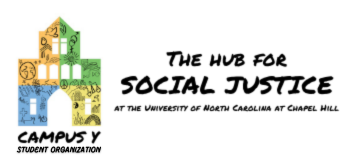CUBE Social Ventures Blossom During Summer Accelerator
July 23, 2018 • Erin Reitz • No CommentsOver the past five years, the Campus Y’s CUBE has supported nearly 30 teams of social innovators as they put their ideas for solving the world’s greatest problems into practice. This spring, the cohort took a new course, PLCY 490 Designing for Impact: Social Enterprise Lab, taught by Melissa Carrier, Professor of the Practice in Public Policy, and Laura Fieselman, CUBE Program Manager. The teams have subsequently put their ideas into practice through the CUBE summer accelerator. During this learning launch, CUBE participants have co-worked full time on their ventures and participated in activities and trainings on social venturing. Learn more about their prototypes’ progress below.
Traditional Kitchens
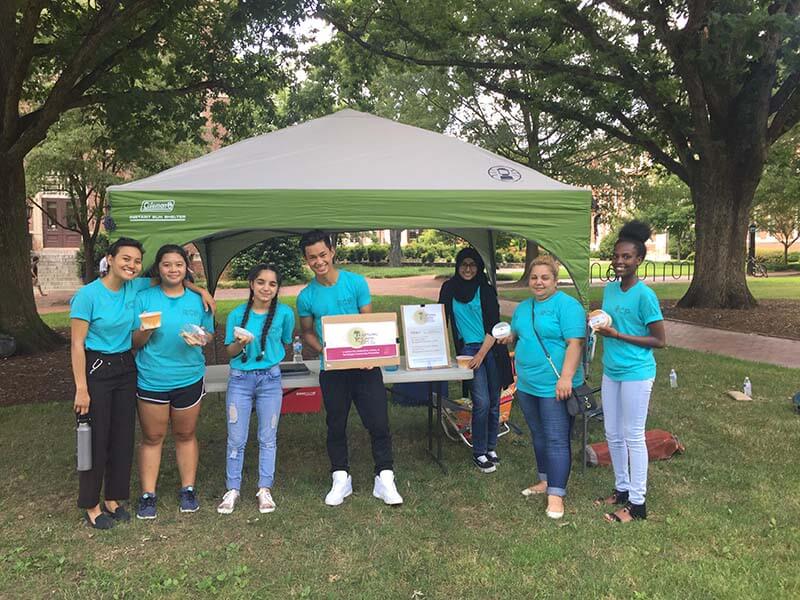
Traditional Kitchens, a refugee women-led cooperative cookery of the Refugee Community Partnership recently hosted its first lunch at the University of North Carolina at Chapel Hill. The pop-up, which sold all of its pre-prepared selections in under thirty minutes, included Syrian and Karen dishes like hummus and pita and Thai red curry with chicken – all prepared with love by Traditional Kitchens chefs Zekiye and Khai.
Traditional Kitchens Director Anum Imran (’21) hopes this customer enthusiasm is a sign that people are excited to support the local refugee community. The Refugee Community Partnership estimates that there are around 1,200 refugee families living in the Chapel Hill area. As refugee women face social isolation and low economic mobility, Imran sees Traditional Kitchens as a bridge that can help refugee women share their food and culture while gaining a sense of community connection and economic empowerment.
“The refugee community as a whole is incredibly talented and resilient,” said Imran. “They already possess exactly what a successful entrepreneur needs: skills and grit. They just require resources and support to get started and that’s what Traditional Kitchens offers.”
Zekiye and Khai hugged in celebration when their last meals sold. Zekiye, who moved to the United States from Syria two years ago, began cooking with her mother at a very young age. She loves sharing food with others and dreams of becoming a renowned chef. With the help of Traditional Kitchens, Zekiye now has access to necessities like a commercial kitchen, product promotion, and a consumer base.
Imran hopes to provide Zekiye and her culinary partners with a more consistent schedule of cooking and sale days this fall. As a rising sophomore, Imran has years to decide how Traditional Kitchens will grow; and while she is eager to talk about her dreams for the future, she also expresses gratitude for her formative first year at Carolina.
“Shout out to UNC for randomly placing me in Melissa Carrier’s first-year seminar on social innovation and entrepreneurship,” Imran said.
Professor Carrier inspired Imran to view social entrepreneurship as an attainable goal, rather than a far-off dream. Participating in CUBE and partnering with the Refugee Community Partnership bolstered her ability to channel her passion into tangible community impact in just six months.
“Last year at this time I had no entrepreneurial knowledge whatsoever and now I’m building revenue models and cost structures,” Imran laughed. “CUBE has shown me that business is an important and powerful tool for making change happen.”
Kids Code
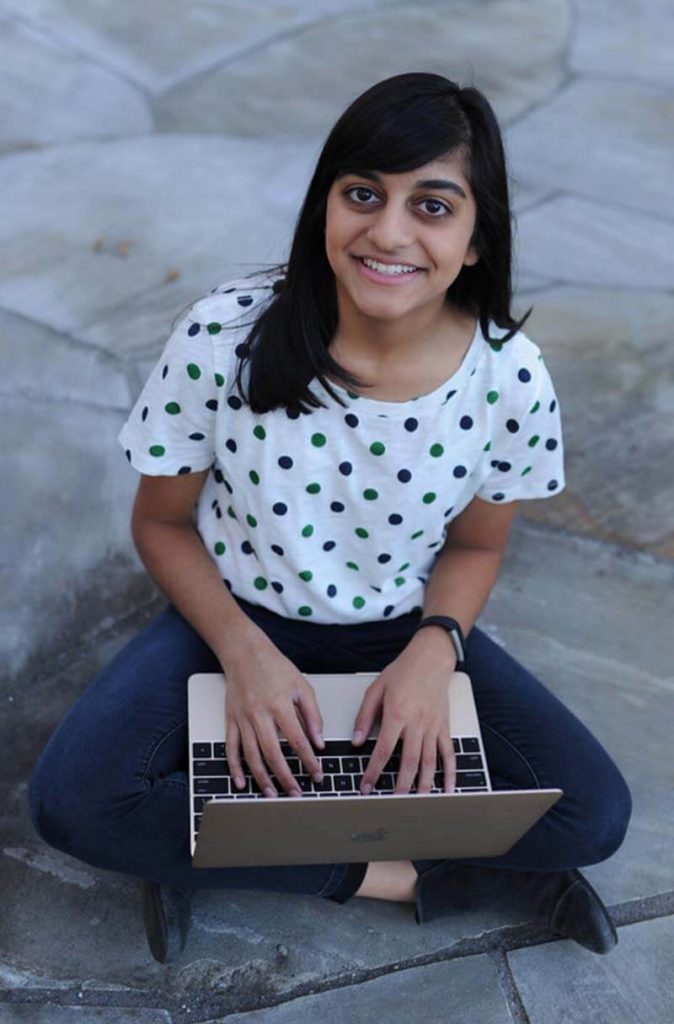
Angel Patel (’21) defines computer programming and coding as “a foreign language that allows us to communicate with our technology.” However, unlike foreign languages, computer coding is not taught in most schools in America. This is an alarming absence given that employment surveys report computer science-related occupations are among the fastest growing occupations in the U.S.
“Computer science has recently been dubbed ‘the blue-collar job of the future,’” Patel explained. “It is a great option for students who are not able to attend a two- or four-year college. You can attend a six-month or 12-week coding boot camp and go on to earn a sizable income to support a family.”
Patel’s passion for computer science started in high school when she attended a computer science camp at UNC. She left the two-week experience feeling energized and motivated, but quickly discovered that opportunities to continue learning and practicing computer science skills were scarce in her hometown of Savannah, Georgia. Rather than accept this disappointment, Patel decided this was a problem that she could tackle. She began offering Kids Code weekend workshops at the public library, slowly fostering a community of teenagers interested in computer science and gaining the collaboration she’d desired. After delivering a TEDx Savannah talk and winning Savannah’s FastPitch competition in 2016, her weekend workshops reached capacity. Since joining the 2017-2018 CUBE cohort, Patel has expanded her Kids Code venture and organized three computer science summer camps in Savannah, Chapel Hill, and Durham respectively.
This summer Patel is coaching her classes through the construction of “About Me” pages using HTML, CSS, and Java, and the design of basic video games using Scratch. While her campers have fun working on these creative assignments, Patel’s mission isn’t merely to help them develop a new hobby. Kids Code aims to make computer science education – and the promising career paths that it offers – available to students of all socioeconomic backgrounds. Patel uses a price discrimination model so that camp is open to any interested child.
“The term ‘computer science’ seems inaccessible to most people and carries with it mental image of an isolated nerd coding in the corner,” Patel explains. “But as a social entrepreneur, I see that I can use Kids Code to break down that stigma and use my business to bring communities together.”
Click here to learn more about Kids Code.
Phyta
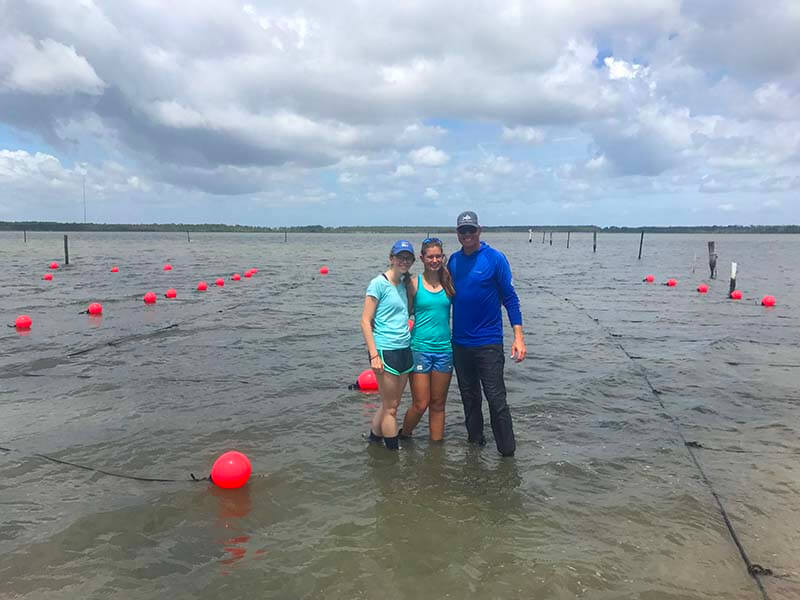
In April we reported that Phyta, a current CUBE venture powered by Eliza Harrison (’19), Lucy Best (’19), and Emily Kian (’20), was making waves at startup competitions across the globe. The team won the Hult Prize regional final in Melbourne, Australia, which granted them a coveted spot as one of fifty Hult Prize finalists. This summer they’re joining the other winners at the Hult Castle in London for an eight-week business accelerator program. From there, six teams will earn the right to vie for the 1-million-dollar grand prize at the Hult Summit in September.
Since its inception Phyta has focused primarily on growing algae for marine preservation. While vacationers may squirm at the slimy feeling of algae between their toes during a dip in the ocean, the plant has become increasingly celebrated by scientific communities for its environmental and nutritional benefits. Macroalgae is a powerful purifier; through photosynthesis, it removes toxic elements present in ocean water from damaging practices like agricultural and industrial dumping.
This spring, the team was thrilled to begin collaborating with Morris Family Farms, a sixth-generation shellfish farm off the coast of North Carolina. By working with this established operation, the team was able to focus on getting its pilot rig in the water, rather than wading through the legal bureaucracy of securing permits. Morris Family Farms was also able to offer Phyta a uniquely appropriate spot for their rig in Nelson Bay.
“Notwithstanding Morris Family Farm’s incredible support with installing the structure, the location they helped us secure for the pilot is immediately adjacent to a runoff stream from one of the largest agriculture farms in the state,” Harrison explained in an email interview. “As a result of this fortunate location, our team will be able to more fully evaluate the nutrient remediation potential associated with macroalgae cultivation.”
In addition to managing their pilot run, Phyta has been hard at work filing a provisional patent application for exclusive rights to their rig design, submitting grant applications, and preparing for the Hult Accelerator, which kicks off this week. If all goes according to plan, they will submit the formal patent application for their rig when they conclude the trial run next year and officially become the first macroalgae farm in the state of North Carolina.
Click here to learn more about Phyta and here to learn more about the Hult Prize Accelerator.
Project Believe
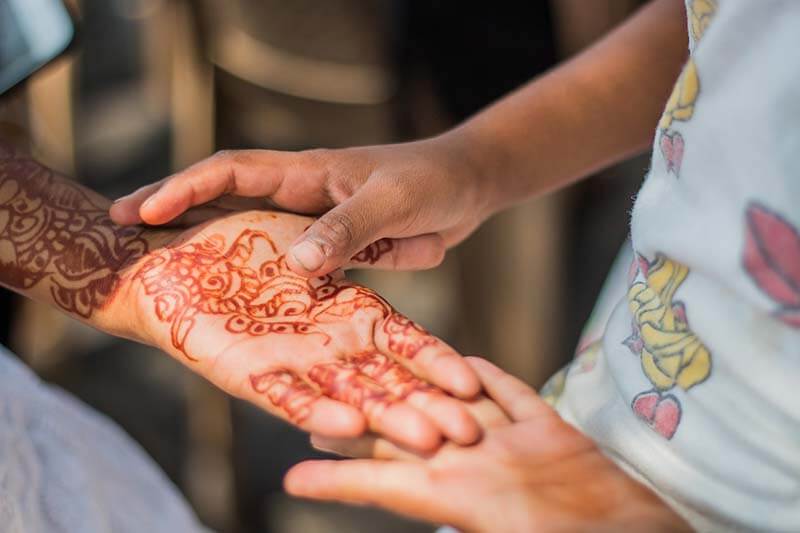
Salma Baig, a third-year Psychology Ph.D. student, believes that minority communities deserve culturally-appropriate mental health care. After witnessing the devastating ripple effects of untreated mental health issues within her Muslim community, Baig felt motivated to act. Her CUBE venture, Project Believe, uses a two-prong approach to uplift mental health awareness: educating mental health providers about minority communities and destigmatizing mental health intervention within minority communities.
Many therapeutic techniques and coping mechanisms offered in the United States do not properly address minority communities’ religious beliefs and cultural attitudes; this deleterious marginalization can result in increasing patients’ distress, rather than alleviating it. Baig is currently creating a manual that will train mental health professionals to provide competent and relevant mental health services to patients from an array of backgrounds.
“Mental health interventions are so Westernized and this causes people from minority communities to feel reluctant about getting help,” Baig said. “It’s not easy to trust a mental health professional who doesn’t understand your culture or where you’re coming from.”
For example, Baig shared a story of a young Muslim woman who was misdiagnosed because she poured water on herself at her psychiatrist’s office. Her psychiatrist did not recognize that it is a common Islamic practice to pray over water and then sprinkle it onto one’s body. In misinterpreting this ritual, he failed to fully identify his patient and her needs.
“He didn’t understand and he didn’t ask questions,” Baig lamented. “He just assumed.”
Baig intends to publish her first manual in the next year. However, in order for health care providers to use this educational tool, minority patients must first feel comfortable asking for help.
“My goal is to help people see that having a mental health condition does not mean there’s anything wrong with them,” Baig said. “It’s only when they are willing to have an open conversation that we can teach them powerful coping mechanisms that are relevant to their culture and beliefs.”
Baig has spent her CUBE summer incubation period developing intervention techniques that feel approachable to individuals within the Triangle’s Muslim community. During Ramadan she held a henna and painting party for adolescent girls at her mosque. The teens were encouraged to practice mindfulness while they painted. By measuring their heart rates before and after the event, Baig demonstrated how meditation can directly impact their physical wellbeing. She was surprised by the enthusiastic response that her community showed towards creative therapy like this and plans to hold more events in the future. Whether she brings up mental health during a private conversation or with a paintbrush in hand, Baig understands that Project Believe has the potential to brighten someone’s day or save someone’s life.
Pupusas for Education
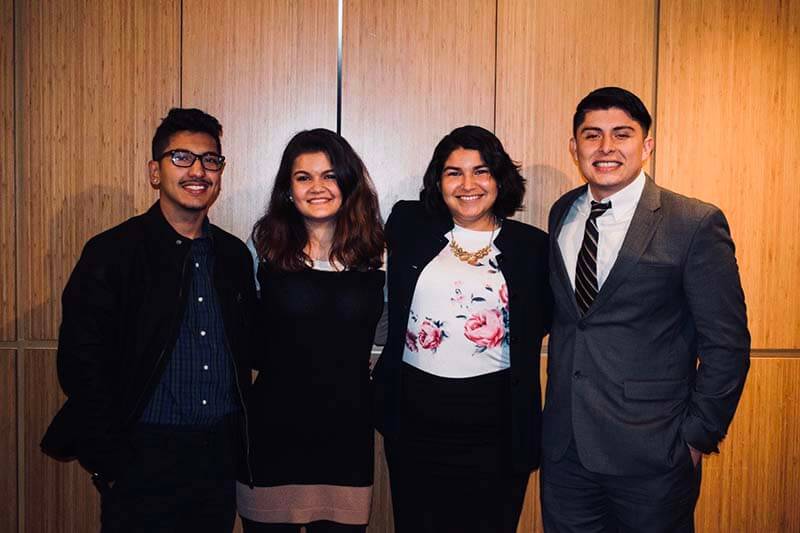
Pupusas for Education’s busy summer will culminate on August 6 with the completion of its pilot internship program. This initiative, managed by Pupusas for Education Executive Director and CUBE participant Tiffany Turner (’18), offers two scholars access to local internships that pay a living wage and relate to their individual career interests.
Pupusas for Education shares the same mission as its sister venture, So Good Pupusas: to close the opportunity gap in access to higher education for undocumented and DACA-mented students in Wake, Orange, and Durham counties through a holistic scholarship program. North Carolina requires that undocumented and DACA-mented students pay out-of-state tuition to attend college, forcing many to choose between going to college out-of-state or not going at all. Turner has witnessed the damaging impacts that these restrictions have on her family and community. She stepped into the Executive Director role last summer determined to fight this injustice.
The idea for an internship program transpired from conversations with Pupusas for Education scholars. While Pupusas for Education’s financial aid has helped five grantees pay for college since its inception in 2016, the scholars expressed an additional need for professional experience to add to their resumes. Turner listened to their desires and got to work.
“Some of the scholars and other undocumented or DACA-mented students I spoke to shared that they are working multiple jobs in the summers and during the school year that pay minimum wage and don’t apply to what they want to study,” Turner explained. “We created this internship program to connect our students with community partners and fund their education outside of the classroom.”
With the help of a consultant, Turner researched topics like leadership development among undocumented students and cultural capital in immigrant communities. She compiled this information into an eight-week summer program that she hopes will provide students with opportunities to develop their professional interests and competencies. In addition to their internships, the pilot scholars have received one-on-one mentoring from local professionals in their fields of interest, stipends to attend conferences of their choice, and budgets to implement summer projects relating to their areas of study.
Maria P., a rising junior at Guilford College, and Jesus P., a rising junior at East Chapel Hill High, are the internship program’s inaugural participants. This summer Jesus is interning with for Partners for Youth Opportunity in Durham, feeding his interests in community advocacy, LGBTQ+ allyship, and resource redistribution to marginalized communities. Maria is interning with Pupusas for Education.
“I wanted to intern with Pupusas for Education because as an undocumented student, I can see the direct impact this scholarship offers,” Maria said. “This internship has pushed me out of my comfort zone, allowing me to learn new skills and meet new people. It has broadened my horizons in knowing what I want to do after college.”
Turner hopes that Maria and Jesus are the first of many scholars who will have the opportunity to explore their passions and professional goals through Pupusas for Education’s expanding scholarship program. No matter how their initiatives evolve in the upcoming year, empowering students will remain her top priority.
“I am constantly checking in and making sure that the work I’m doing is first and foremost in the best interest of the scholars,” Turner said. “Being a social entrepreneur means staying true and accountable to the community that you’re serving.”
Click here to learn more about Pupusas for Education.
